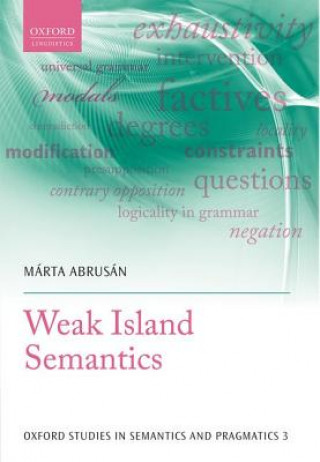
Kód: 04534218
Weak Island Semantics
Autor Marta Abrusan
This book presents a novel semantic account of weak, or selective, islands. Weak islands are configurations that block the displacement of certain elements in a sentence. Examples of island violations with acceptable counterexampl ... celý popis
- Jazyk:
 Angličtina
Angličtina - Väzba: Pevná
- Počet strán: 260
Nakladateľ: Oxford University Press, 2014
- Viac informácií o knihe

201.98 €
Dostupnosť:
50 % šanca Máme informáciu, že by titul mohol byť dostupný. Na základe vašej objednávky sa ho pokúsime do 6 týždňov zabezpečiť.
Máme informáciu, že by titul mohol byť dostupný. Na základe vašej objednávky sa ho pokúsime do 6 týždňov zabezpečiť.Prehľadáme celý svet
Mohlo by sa vám tiež páčiť
Darčekový poukaz: Radosť zaručená
- Darujte poukaz v ľubovoľnej hodnote, a my sa postaráme o zvyšok.
- Poukaz sa vzťahuje na všetky produkty v našej ponuke.
- Elektronický poukaz si vytlačíte z e-mailu a môžete ho ihneď darovať.
- Platnosť poukazu je 12 mesiacov od dátumu vystavenia.
Informovať o naskladnení knihy
Zadajte do formulára e-mailovú adresu a akonáhle knihu naskladníme, zašleme vám o tom správu. Postrážime všetko za vás.
Viac informácií o knihe Weak Island Semantics
Nákupom získate 499 bodov
 Anotácia knihy
Anotácia knihy
This book presents a novel semantic account of weak, or selective, islands. Weak islands are configurations that block the displacement of certain elements in a sentence. Examples of island violations with acceptable counterexamples include '#How much wine haven't you drunk?' (but 'Which girl haven't you introduced to Mary?'), '#How does John regret that he danced at the party?' (but 'Who does John regret that he invited to the party?') or '#How much wine do you know whether you will produce?' (but 'Which glass of wine do you know whether you'll poison?'). For forty years or more, explanations of the unacceptability of these island constructions have been syntactic. Syntactic accounts have also provided some of the key empirical motivation for Chomsky's claim that universal grammar (UG) contains language independent abstract syntactic constraints. But syntactic accounts, however subtle, fail to explain why many weak island violations are made almost acceptable by modals and attitude verbs, as in 'How much wine aren't you allowed to drink?'; 'How fast do you hope Lewis didn't drive?'; or 'How does Romeo regret he was allowed to go to the party?' Dr Abrusan considers which contexts and expressions create - or are sensitive to - weak island violations, and examines the factors that go some way to curing them. She puts forward a semantic analysis to account for the unacceptability of violations of negative, presuppositional, quantificational and wh-islands. She explains why grammaticality violations can be obviated by certain modal expressions, and why and how far the grammaticality judgments of speakers depend on the context of the utterance. The book argues that there is no need to assume abstract syntactic rules in order to derive these facts; rather, they can be made to follow from independent semantic principles. If correct, this work has a fundamental consequence for the field of linguistics in general: it removes some of the most important reasons for postulating abstract syntactic rules as part of UG, and hence weakens the arguments for postulating a module of UG.
 Parametre knihy
Parametre knihy
Zaradenie knihy Knihy po anglicky Language linguistics Semantics, discourse analysis, etc
201.98 €
- Celý názov: Weak Island Semantics
- Autor: Marta Abrusan
- Jazyk:
 Angličtina
Angličtina - Väzba: Pevná
- Počet strán: 260
- EAN: 9780199639380
- ISBN: 0199639388
- ID: 04534218
- Nakladateľ: Oxford University Press
- Hmotnosť: 636 g
- Rozmery: 259 × 194 × 24 mm
- Dátum vydania: 20. February 2014
Obľúbené z iného súdka
-

Comic Toolbox
13.60 € -16 % -

Winning Arguments
20.15 € -6 % -

Selections from Science and Sanity
14.32 € -17 % -

Lover's Discourse
11.14 € -23 % -

Language and Symbolic Power
26.18 € -4 % -

Lew Hunter's Screenwriting 434
25.78 € -

Language and Power
68.04 € -

Winning Arguments
16.46 € -5 % -

Language
14.42 € -

Whose Space is it Anyway?
68.96 € -

Mythologies
11.14 € -23 % -

Introducing Semiotics
10.12 € -22 % -

After Babel
29.56 € -

Critical Discourse Analysis
78.88 € -

Rhetoric: A Very Short Introduction
10.12 € -22 % -
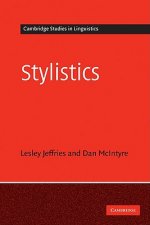
Stylistics
54.22 € -

Three Steps on the Ladder of Writing
27.72 € -11 % -
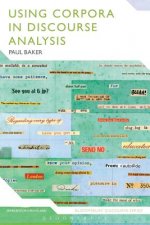
Using Corpora in Discourse Analysis
73.66 € -

Discourse Theory and Political Analysis
36.01 € -

Six Walks in the Fictional Woods
35.80 € -

Word and Object (Studies in Communication)
22.91 € -
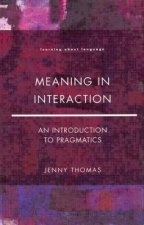
Meaning in Interaction
73.36 € -
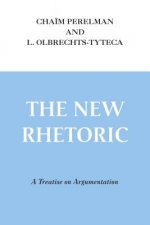
New Rhetoric, The
44.50 € -

Think Again
12.27 € -23 % -

Digital Discourse
81.03 € -
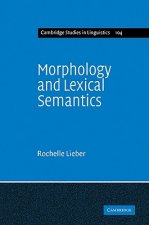
Morphology and Lexical Semantics
46.55 € -

Semantics
43.38 € -

How to do Discourse Analysis
56.78 € -

Functional Discourse Grammar for English
67.83 € -

Discourse Reader
109.78 € -

Idioms and Collocations
303.08 € -

Meaning in Language
62.51 € -

Handbook of Discourse Analysis 2e
84.71 € -

Language in Thought and Action
16.16 € -21 % -
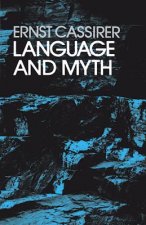
Language and Myth
8.38 € -18 % -

Role of the Reader
30.99 € -

Discourse Analysis as Theory and Method
111.42 € -

Introduction to Discourse Analysis
63.84 € -

Immediate Fiction
23.32 € -3 % -

How to Analyse Texts
57.60 € -

Political Metaphor Analysis
66.19 € -

How to Do Critical Discourse Analysis
84.31 € -

Collocation
70.80 € -

Sign of Three
30.99 € -
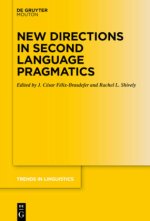
New Directions in Second Language Pragmatics
24.24 € -3 % -

How to Read a Poem
19.43 € -4 % -

Generative Lexicon
56.68 € -

Postclassical Narratology
56.68 € -

Methods of Critical Discourse Studies
56.17 € -1 %
Osobný odber Bratislava a 2642 dalších
Copyright ©2008-24 najlacnejsie-knihy.sk Všetky práva vyhradenéSúkromieCookies





 21 miliónov titulov
21 miliónov titulov Vrátenie do mesiaca
Vrátenie do mesiaca 02/210 210 99 (8-15.30h)
02/210 210 99 (8-15.30h)